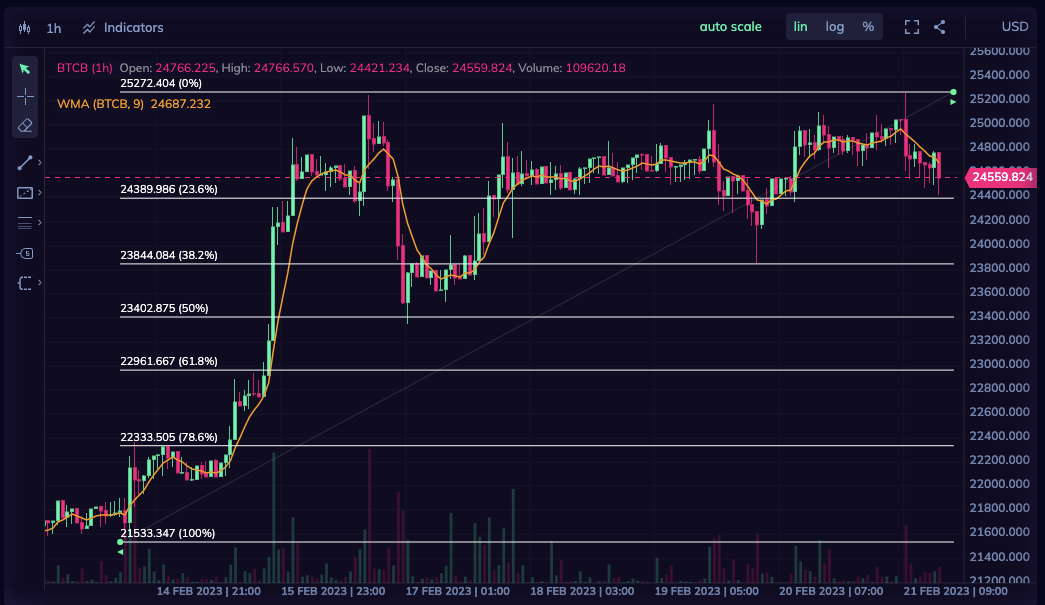Smart Contract
A smart contract is a self-executing contract that is coded into a blockchain. It allows for automatic execution of terms and conditions of an agreement between two parties without the need for intermediaries.

Smart contracts have revolutionized the way transactions are conducted in the world of cryptocurrency. These digital contracts allow for automated execution of complex transactions without the need for intermediaries. In this article, we will explore the definition, history, how they work, examples, pros and cons, and interesting facts about smart contracts in the crypto world.
Definition of Smart Contracts in Crypto
A smart contract is a self-executing contract that is coded into a blockchain. It allows for automatic execution of terms and conditions of an agreement between two parties without the need for intermediaries. Smart contracts use blockchain technology to create a tamper-proof, transparent, and secure environment for transactions.
History of Smart Contracts in Crypto
The concept of smart contracts was first introduced by computer scientist Nick Szabo in 1994. Szabo proposed the idea of using digital contracts that could automatically execute certain actions without human intervention. However, it was not until the advent of blockchain technology that smart contracts became a reality.
The first implementation of smart contracts was in the Ethereum network in 2015. Ethereum is a blockchain-based platform that enables developers to create and deploy decentralized applications (dApps) using smart contracts. Since then, smart contracts have become an integral part of the cryptocurrency ecosystem.
How Smart Contracts Work in Crypto
Smart contracts are coded using a programming language, typically Solidity, and stored on a blockchain. The contract is executed automatically when certain conditions are met, such as the transfer of a certain amount of cryptocurrency. Once the conditions are met, the contract is executed without the need for human intervention.
Smart contracts work by using a series of rules and conditions to automate the execution of a transaction. These rules and conditions are coded into the contract and stored on the blockchain, making them transparent and immutable.
Examples of Smart Contracts in Crypto
One example of a smart contract in crypto is the decentralized exchange (DEX). A DEX is a platform that allows users to trade cryptocurrencies without the need for intermediaries. Smart contracts are used to automate the execution of trades, ensuring that the exchange is transparent, secure, and tamper-proof.
Another example of a smart contract in crypto is the initial coin offering (ICO). An ICO is a way for companies to raise funds by issuing their own cryptocurrency tokens. Smart contracts are used to automate the distribution of tokens and ensure that the terms and conditions of the offering are met.
Pros and Cons of Smart Contracts in Crypto
Pros:
- Transparency: Smart contracts are stored on a blockchain, which is a transparent and immutable ledger.
- Security: Smart contracts use cryptographic algorithms to ensure that they are tamper-proof and secure.
- Automation: Smart contracts automate the execution of transactions, eliminating the need for intermediaries.
- Efficiency: Smart contracts can execute transactions quickly and efficiently, reducing the time and cost of transactions.
- Accessibility: Smart contracts enable anyone with an internet connection to participate in transactions, regardless of their location.
Cons:
- Complexity: Smart contracts require programming skills and knowledge of blockchain technology, which can be a barrier to entry for some users.
- Immutability: Smart contracts are stored on the blockchain and cannot be changed once deployed, which can be a problem if there are errors in the code.
- Lack of regulation: Smart contracts are not regulated, which can lead to legal issues if there are disputes between parties.
Interesting Facts About Smart Contracts in Crypto
- Smart contracts have been used in the healthcare industry to automate the management of medical records and ensure patient privacy.
- The World Food Programme has used smart contracts to distribute aid to refugees in Jordan, providing them with a transparent and secure way to receive food vouchers.
- The first smart contract ever executed was a simple contract that transferred 10 BTC from one address to another.
- Smart contracts have the potential to disrupt many industries beyond finance and law, including real estate, supply chain management, and gaming.
- Smart contracts can be written to execute complex actions, such as the transfer of assets between parties based on predefined conditions.
- Smart contracts are not limited to the Ethereum blockchain, as other blockchain networks have also implemented smart contract functionality, such as the BNB Chain and the Polkadot network.
- The use of smart contracts has led to the development of decentralized autonomous organizations (DAOs), which are organizations that operate using smart contracts instead of a central authority.
- Smart contracts can be audited to ensure that they are free from errors and vulnerabilities that could be exploited by attackers.
- The use of smart contracts has the potential to reduce fraud and corruption in industries such as supply chain management by providing a transparent and secure way to track the movement of goods.
- The adoption of smart contracts is still in its early stages, and there is significant potential for growth and innovation in the years to come.
- Smart contracts can be used for a wide range of applications, from simple transactions to complex governance systems.
- Smart contracts can be integrated with external data sources to automate the execution of transactions based on real-world events, such as changes in the price of a commodity or the outcome of a sports match.
- The use of smart contracts has the potential to reduce the cost of legal and financial services by automating routine tasks, such as contract execution and record keeping.
- Smart contracts can be used to create digital identities, enabling individuals to prove their identity without the need for intermediaries such as banks or government agencies.
- Smart contracts have been used to implement new forms of fundraising, such as the initial coin offering (ICO) and the security token offering (STO), which have raised billions of dollars in capital.
- Smart contracts are being used to develop new types of financial instruments, such as prediction markets and stablecoins, which aim to provide greater stability and transparency in the cryptocurrency ecosystem.
- The use of smart contracts has the potential to reduce the risk of counterparty default, as the terms of the contract are automatically enforced once the conditions are met.
Conclusion
In conclusion, smart contracts are a powerful tool in the world of cryptocurrency and blockchain technology. They enable the automation of complex transactions and the execution of governance systems without the need for intermediaries, providing greater efficiency, transparency, and security. Smart contracts have already been used for a variety of applications, from simple transactions to fundraising and the development of new financial instruments. However, as with any new technology, there are still challenges that must be addressed, including scalability and security. Despite these challenges, the potential benefits of smart contracts are significant, and they have the potential to revolutionize many industries beyond finance and law.




